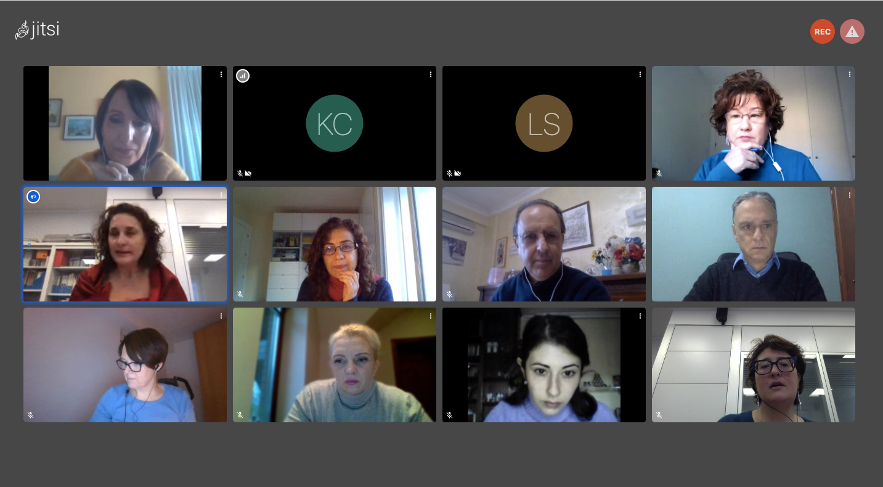KICK-OFF and CONSORTIUM MEETINGS – Digital Project for Literacy and Future Education (DIG4LIFE) Ref. 2020-1-IT02-KA201-079420 26 January 2021
On November 11th, the Kick-off meeting of the international project DIG4LIFE took place by videoconference, with the participation of the University of Cadiz and the Italian University Universita degli Studi Roma Tre (project applicant), Academia Druzba Za Storitve Doo (Slovenia), FH Joanneum Gesellschaft mbH (Austria), Klaipedos Universitetas (Lithuania), Laurea-Ammattikorkeakoulu OY (Finland) and the company Entropy Knowledge Network Srl (Italy). This meeting was attended by the members of the working team of the UCA composed by Mercedes Ruiz Carreira (project manager), Alejandro Calderón Sánchez, Nuria Hurtado Rodríguez, María Teresa García Horcajadas, Elena Orta Cuevas and Manuel Trinidad García, from the Department of Computer Science and Engineering, and Nieves Gómez Aguilar, from the Department of Financial Economics and Accounting, both of our University
The consortium held its second working meeting on December 17th, also by videoconference, where the first advances in relation to the methodologies and tools for self-evaluation and the theoretical principles that will guide the development of the project were presented and discussed. The project’s agenda of activities will extend until February 2023
DIGital for LIteracy and Future Education, acronym DIG4LIFE, is an international project approved in the Eramus+ call for proposals in 2020 (Round 1) and has received a total budget of 312,657.00 Euros for its execution. DIG4LIFE is part of the Key Action 2 (KA2) Cooperation for innovation and the exchange of good practices) and, more specifically, KA201 Strategic Partnerships for school education.
DIG4LIFE is an action-research project that aims to create the conditions for the exchange of best practices in the teaching of digital skills through innovation and the dissemination of innovative tools, such as the simulator and the teaching editor for digital gamification environments. Among its objectives, the project will address the awareness of people about the importance of digital skills and the strengthening of these skills in areas such as artificial intelligence and employability
The UCA team will be in charge the intellectual output aimed at defining the experimentation protocol to validate the results of the experiments that will be developed in the selected schools in five of the countries of the consortium.


